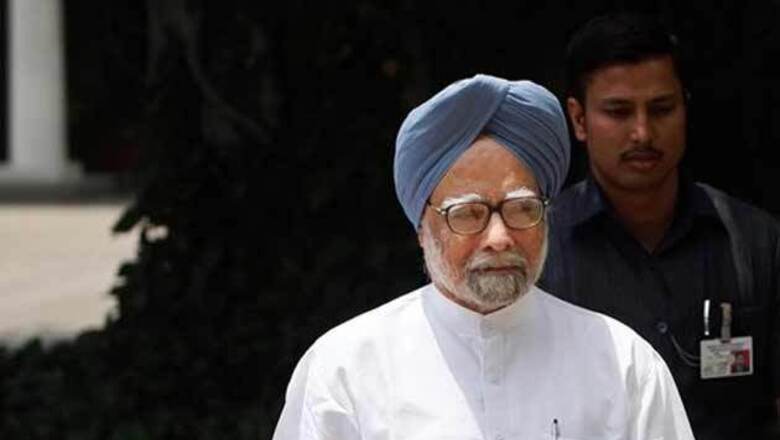
views
New Delhi: The Manmohan Singh Administration has made a crucial change in a key requirement for allowing a foreign company to start a fully-owned single-brand retail business in India. When the government had cleared 100 per cent Foreign Direct Investment (FDI) in single-brand retail earlier, it had stipulated that 30 per cent of the value of the products being sold must be sourced from small and medium industries in India.
This had immediately led well-known single-brand retailing companies like Ikea to point tout that they could not start Indian operations on these conditions. For, they argued, the Indian small and medium enterprises sector do not manufacture the products or components of products that they sell.
Faced with such responses, section of the UPA government are believed to have been in favour of withdrawing the stipulation altogether. However, this evoked political protests within its constituents and from the Opposition. Now, in a modification of the original requirement, the 30 per cent requirement has been waived for those retail brands whose products cannot be sourced from the small and medium scales.
More specifically, the waiver supposedly applies to those brands for very specialised or high technology items. The argument provided: India’s small and medium scale sectors may not be manufacturing such products at the moment. And that the products may be niche products, the markets for which are not big enough in India to justify setting up production capacities to meet the 30 per requirement.
Significantly, the crucial word for deciding on such a waiver is ‘feasible’. The revised version of the 30 per cent condition says: ‘In respect of proposals involving FDI beyond 51 per cent, sourcing of 30 per cent, of the value of goods purchased, will be done from India, preferably from MSMEs, village and cottage industries, artisans and craftsmen, in all sectors, where it is feasible.’ In other words, a brand may be free to argue that such sourcing is not ‘feasible’ and thus receive a waiver.
Here are the relevant portions of the official government explanation:
‘Regarding the condition that 30 per cent sourcing be mandatorily done from Indian small industry, investors have pointed out that it would be difficult to comply with this condition in the case of very specialized/high technology items. Global single brand retailers are often engaged in the business of retailing specialty/high-tech products. Such products are niche products, wherein it may not be viable for the foreign investors to build capacities wherever they engage in retailing, owing to the specialized requirements of quality and precision which the local small industry may not be able to provide. Investors are, therefore, of the view that the condition of 30 per cent mandatory sourcing from Indian small industries/village and cottage industries, artisans and craftsmen, is acting as a deterrent to the desired foreign investment in this activity.
The other category of products relate to the entire range from household appliances, utensils, furniture, crockery to furnishings, etc. These products are far more amenable to sourcing from MSMEs, village and cottage industries, artisans and craftsmen. Therefore, the proposed modification of the condition is envisaged to take into account the circumstances of both the specialized/high technology niche products, as well as the general category, covering a wide range of items. The fact that 30 per cent domestic sourcing is being mandated would imply that the single brand retailers would have to build production capacities in the country, either in existing units, or set up new ones, catering specifically to their sourcing requirements. Hence, even the 30 per cent domestic sourcing is expected to develop production capacities in the country, with the attendant global best practices, relating to design, production and quality. Since single brand retailers are global players, Indian suppliers and vendors to these retailers would have an opportunity of becoming a part of their global supply chains. Thus, Indian products could find their way in the stores of these single brand retailers located in other countries, thereby augmenting exports from India as well.'

















Comments
0 comment